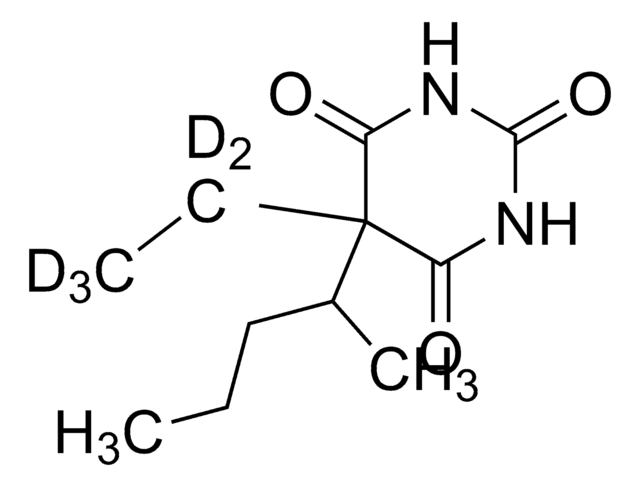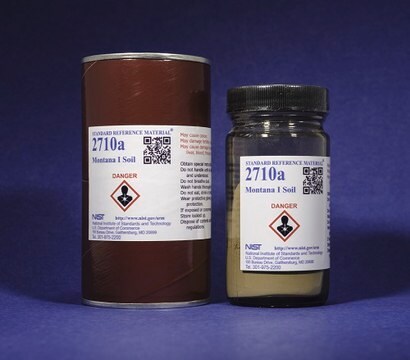P0500000
Pentobarbital
European Pharmacopoeia (EP) Reference Standard
Synonym(s):
5-Ethyl-5-(1-methylbutyl)-2,4,6-trioxohexahydropyrimidine, Nembutal
About This Item
Recommended Products
API family
pentobarbital
manufacturer/tradename
EDQM
drug control
USDEA Schedule II; regulated under CDSA - not available from Sigma-Aldrich Canada; psicótropo (Spain); Decreto Lei 15/93: Tabela IIC (Portugal)
application(s)
pharmaceutical (small molecule)
format
neat
storage temp.
2-8°C
SMILES string
CCCC(C)C1(CC)C(=O)NC(=O)NC1=O
InChI
1S/C11H18N2O3/c1-4-6-7(3)11(5-2)8(14)12-10(16)13-9(11)15/h7H,4-6H2,1-3H3,(H2,12,13,14,15,16)
InChI key
WEXRUCMBJFQVBZ-UHFFFAOYSA-N
Gene Information
human ... GABRA1(2554) , GABRA2(2555) , GABRA3(2556) , GABRA4(2557) , GABRA5(2558) , GABRA6(2559) , GABRB1(2560) , GABRB2(2561) , GABRB3(2562) , GABRD(2563) , GABRE(2564) , GABRG1(2565) , GABRG2(2566) , GABRG3(2567) , GABRP(2568) , GABRQ(55879)
Looking for similar products? Visit Product Comparison Guide
General description
Application
Packaging
Other Notes
Signal Word
Danger
Hazard Statements
Precautionary Statements
Hazard Classifications
Acute Tox. 3 Oral - Repr. 2 - STOT SE 3
Target Organs
Central nervous system
Storage Class Code
6.1C - Combustible acute toxic Cat.3 / toxic compounds or compounds which causing chronic effects
WGK
WGK 3
Flash Point(F)
Not applicable
Flash Point(C)
Not applicable
Choose from one of the most recent versions:
Certificates of Analysis (COA)
Sorry, we don't have COAs for this product available online at this time.
If you need assistance, please contact Customer Support.
Already Own This Product?
Find documentation for the products that you have recently purchased in the Document Library.
Our team of scientists has experience in all areas of research including Life Science, Material Science, Chemical Synthesis, Chromatography, Analytical and many others.
Contact Technical Service








